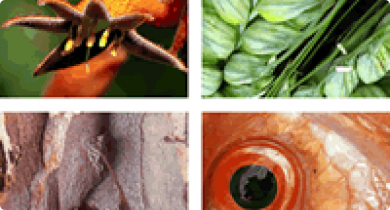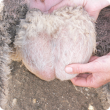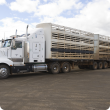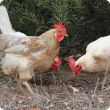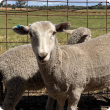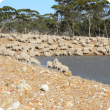Biosecurity & quarantine
The Department of Agriculture and Food, Western Australia (DAFWA) works with primary industries to safeguard our agricultural resources from biological threats and to maintain our export opportunities.
The State’s reputation is underpinned by a comprehensive biosecurity and quarantine system, developed and operated by DAFWA.
DAFWA is involved with:
- creation of surveillance and diagnostic programs
- animal and plant risk assessments
- importing and exporting requirements
- creating mechanisms to respond to incursions
- livestock movement and identification
- development and maintenance of biosecurity and quarantine legislation.
To find out more about what we do to protect agricultural production and export opportunities within the State please search our website.
Filter by search
Filter by topic
- (-) Remove Livestock & animals filter Livestock & animals
- Biosecurity (144) Apply Biosecurity filter
- Livestock biosecurity (120) Apply Livestock biosecurity filter
- Pests, weeds & diseases (114) Apply Pests, weeds & diseases filter
- Livestock species (102) Apply Livestock species filter
- Diseases (94) Apply Diseases filter
- Livestock health & diseases (93) Apply Livestock health & diseases filter
- Livestock disease surveillance (85) Apply Livestock disease surveillance filter
- Livestock management (61) Apply Livestock management filter
- Sheep (43) Apply Sheep filter
- Beef cattle (35) Apply Beef cattle filter
- Emergency animal disease preparedness (28) Apply Emergency animal disease preparedness filter
- Livestock movement & identification (27) Apply Livestock movement & identification filter
- Dairy cattle (27) Apply Dairy cattle filter
- Management & reproduction (19) Apply Management & reproduction filter
- Poultry & birds (16) Apply Poultry & birds filter
- Pigs (16) Apply Pigs filter
- Control methods (15) Apply Control methods filter
- Horses (14) Apply Horses filter
- Goats (14) Apply Goats filter
- Chemicals (12) Apply Chemicals filter
- Emergency response (11) Apply Emergency response filter
- Feeding & nutrition (10) Apply Feeding & nutrition filter
- Climate, land & water (9) Apply Climate, land & water filter
- Stockfeed (7) Apply Stockfeed filter
- Pests (7) Apply Pests filter
- Animal welfare (7) Apply Animal welfare filter
- Invasive species (7) Apply Invasive species filter
- Crops (7) Apply Crops filter
- Veterinary chemicals (6) Apply Veterinary chemicals filter
- Food, export & investment (6) Apply Food, export & investment filter
- Bees (6) Apply Bees filter
- Residues in livestock (5) Apply Residues in livestock filter
- State Barrier Fence (5) Apply State Barrier Fence filter
- Preventing residues (5) Apply Preventing residues filter
- Quarantine (5) Apply Quarantine filter
- Animals in emergencies (5) Apply Animals in emergencies filter
- Pest mammals (5) Apply Pest mammals filter
- Camelids (5) Apply Camelids filter
- Pest animals (5) Apply Pest animals filter
- Wildlife biosecurity (4) Apply Wildlife biosecurity filter
- Plant biosecurity (4) Apply Plant biosecurity filter
- Importing animals (4) Apply Importing animals filter
- Importing to Western Australia (4) Apply Importing to Western Australia filter
- Land use (3) Apply Land use filter
- Biosecurity governance (3) Apply Biosecurity governance filter
- Horticulture (2) Apply Horticulture filter
- Baits & poisons (2) Apply Baits & poisons filter
- Grains (2) Apply Grains filter

